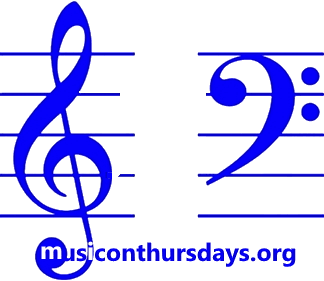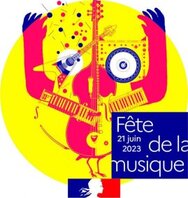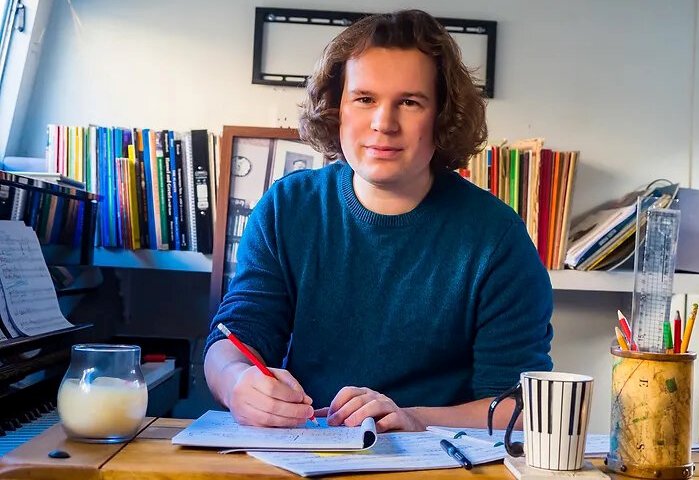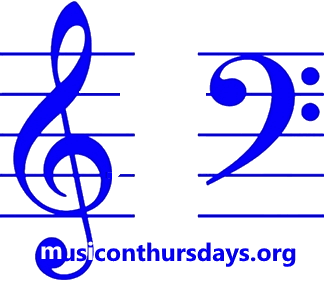Programme
Pedro Iturralde (1929-2020)
La Pequeña Czarda (1949)
Richard Rodney Bennett (1936-2012)
Four Country Dances (2000)
I A New Dance
II Lady Day
III The Mulberry Garden
IV Nobody's Jig
Alastair Penman (b1988)
Soar
Robert Planel (1908-1924)
Prelude et Saltarelle for alto saxophone (1957)
Achille Claude Debussy (1862-1918)
arr Jenni Watson (b1985)
Doctor Gradus ad Parnassum
Andy Scott (b1966)
And Everything is Still
Jules Auguste Demersseman (1833-1866)
arr Dr Fred LeRoy Hemke Jr (1935-2019)
Introduction and Variations on Carnival of Venice Op 7
Concert duration approx: 55 minutes
Please donate to help fund these concerts at: cafdonate.cafonline.org/14455
Fête de la musique: although Make Music Day 2023 in the UK is strictly confined to Wednesday 21st June, French rules allow events within a few days of the solstice to be included this year!
Alastair Penman
Saxophonist – Clarinettist – Composer – Educator
Hailed as a “pioneering instrumentalist and writer” and praised for his “surpassingly beautiful music” and “undoubtedly brilliant mind”, British saxophonist Alastair Penman is a dynamic and versatile performer and composer, presenting contemporary music in new and exciting ways.
Having earned masters’ degrees in both Information and Computer Engineering (University of Cambridge) and Saxophone Performance (Royal Northern College of Music), Alastair has a strong interest in the fusion of live saxophone performance with electronic effects, backings, and enhancements to create often previously
undiscovered sound-worlds.
Although classically trained, Alastair enjoys exploring many musical worlds. Such influences can be heard in his compositions and performances, which often transcend genre definition.
As a soloist, Alastair has performed at venues including St Martin-in-the-Fields, St John’s Smith Square, Milton Court and Trinity College Chapel. He has been a guest recitalist at the RNCM and Canterbury Christ Church University Saxophone Days, and at European and World Saxophone Congresses, presenting material from his debut album, Electric Dawn (Sospiro Records), which has also received airplay on BBC
Radio 3.
Alastair’s latest album, Do You Hear Me? (Sospiro Records), highlighting the climate emergency, has been described by critics as “groundbreaking”, “a superb mix of sounds” and “damn good music”.
In an ensemble setting Alastair leads the award-winning Borealis Saxophone Quartet, with whom he has given numerous live performances on BBC Radio 3, and he also plays baritone saxophone with the Kaleidoscope Saxophone Quartet. Alastair has performed with the Philharmonia Orchestra, London Contemporary Orchestra and Royal Ballet Sinfonia and has appeared with jazz groups at Montreux and London Jazz Festivals as well as at jazz clubs across Europe.
As a composer, Alastair has been commissioned by organisations including Park Lane Group, RVW Trust, and City Music Foundation, and his compositions can be heard on commercially available recordings. Alastair’s works have been performed extensively in the UK, and have also received performances in Europe, North and South America, Africa and Australasia. Over a dozen of Alastair’s compositions are published by Saxtet Publications, and many more are self-published. A number of Alastair’s compositions appear on the ABRSM and Trinity Saxophone Syllabuses.
As an educator, Alastair has been a Professor of Saxophone at the Guildhall School of Music and Drama since 2020 (previously Visiting Professor of Saxophone and Electronics, 2018-20) and has taught classes at the Royal Northern College of Music, Trinity Laban Conservatoire and Royal Welsh College of Music and Drama as well as internationally at UCLA and Cal State Fullerton (USA). Alastair is a regular tutor for
Benslow Music, has been a guest tutor for the National Youth Wind Orchestra of Great Britain and has taught students for University of Cambridge and University of Liverpool.
Alastair acted as editor, notation specialist, and model for John Harle’s seminal book The Saxophone (Faber). Alastair runs a YouTube Channel, Saxophone Resources, which contains educational resources and receives over 40,000 views each month (and has exceeded 3.5 million total views).
Alastair is a City Music Foundation Artist, Park Lane Group Artist, BBC Introducing Artist, Live Music Now Artist, a Freeman of the Worshipful Company of Musicians, and has won awards from the Countess of Munster Musical Trust, RNCM and St Catharine’s College.
Alastair is a Henri Selmer Paris and Vandoren UK Performing Artist.
https://www.alastairpenman.co.uk/
Hailed as a “pioneering instrumentalist and writer” and praised for his “surpassingly beautiful music” and “undoubtedly brilliant mind”, British saxophonist Alastair Penman is a dynamic and versatile performer and composer, presenting contemporary music in new and exciting ways.
Having earned masters’ degrees in both Information and Computer Engineering (University of Cambridge) and Saxophone Performance (Royal Northern College of Music), Alastair has a strong interest in the fusion of live saxophone performance with electronic effects, backings, and enhancements to create often previously
undiscovered sound-worlds.
Although classically trained, Alastair enjoys exploring many musical worlds. Such influences can be heard in his compositions and performances, which often transcend genre definition.
As a soloist, Alastair has performed at venues including St Martin-in-the-Fields, St John’s Smith Square, Milton Court and Trinity College Chapel. He has been a guest recitalist at the RNCM and Canterbury Christ Church University Saxophone Days, and at European and World Saxophone Congresses, presenting material from his debut album, Electric Dawn (Sospiro Records), which has also received airplay on BBC
Radio 3.
Alastair’s latest album, Do You Hear Me? (Sospiro Records), highlighting the climate emergency, has been described by critics as “groundbreaking”, “a superb mix of sounds” and “damn good music”.
In an ensemble setting Alastair leads the award-winning Borealis Saxophone Quartet, with whom he has given numerous live performances on BBC Radio 3, and he also plays baritone saxophone with the Kaleidoscope Saxophone Quartet. Alastair has performed with the Philharmonia Orchestra, London Contemporary Orchestra and Royal Ballet Sinfonia and has appeared with jazz groups at Montreux and London Jazz Festivals as well as at jazz clubs across Europe.
As a composer, Alastair has been commissioned by organisations including Park Lane Group, RVW Trust, and City Music Foundation, and his compositions can be heard on commercially available recordings. Alastair’s works have been performed extensively in the UK, and have also received performances in Europe, North and South America, Africa and Australasia. Over a dozen of Alastair’s compositions are published by Saxtet Publications, and many more are self-published. A number of Alastair’s compositions appear on the ABRSM and Trinity Saxophone Syllabuses.
As an educator, Alastair has been a Professor of Saxophone at the Guildhall School of Music and Drama since 2020 (previously Visiting Professor of Saxophone and Electronics, 2018-20) and has taught classes at the Royal Northern College of Music, Trinity Laban Conservatoire and Royal Welsh College of Music and Drama as well as internationally at UCLA and Cal State Fullerton (USA). Alastair is a regular tutor for
Benslow Music, has been a guest tutor for the National Youth Wind Orchestra of Great Britain and has taught students for University of Cambridge and University of Liverpool.
Alastair acted as editor, notation specialist, and model for John Harle’s seminal book The Saxophone (Faber). Alastair runs a YouTube Channel, Saxophone Resources, which contains educational resources and receives over 40,000 views each month (and has exceeded 3.5 million total views).
Alastair is a City Music Foundation Artist, Park Lane Group Artist, BBC Introducing Artist, Live Music Now Artist, a Freeman of the Worshipful Company of Musicians, and has won awards from the Countess of Munster Musical Trust, RNCM and St Catharine’s College.
Alastair is a Henri Selmer Paris and Vandoren UK Performing Artist.
https://www.alastairpenman.co.uk/
Jonathan Pease
Pianist – Composer – Musical Director
Jonathan Pease graduated with an MA in Music from Cambridge University in 2010 before undertaking further study as a pianist with Graham Fitch. As an accompanist and repetiteur, he has worked with groups including the Royal Opera House, Garsington Opera, Glyndebourne Youth Opera, Spitalfields Music, Opera Holland Park, Chelsea Opera Group and the Orpheus Sinfonia.
Jonathan has duo partnerships with Alastair Penman (saxophone) and Nicola Hands (oboe) and has performed recitals at venues including St James Piccadilly, St Martin in the Fields, and Winchester, Bury and Peterborough Cathedrals.
Jonathan has musically directed from the piano La Traviata for Devon Opera; and Puccini's Suor Angelica and operettas by Gilbert and Sullivan for Opera Anywhere.
Fiercely committed to music-making in his native East London, he conducts the East London Evensong Choir and Aldersbrook Community Choir.
Jonathan is a prolific composer and librettist, with a particular interest in opera and church music. His first full-length opera, These Things Happen, enjoyed eight performances at the Courtyard Theatre, Hoxton, in 2012.
His second, Concrete Music, premièred at Poplar Union in 2020. A children’s opera, St Luke’s Shipwreck, commissioned for the 150th anniversary of an East London Primary School, was first performed in front of the Bishop of Stepney and the Mayor of Tower Hamlets in 2019; while a commissioned chamber opera, Marginalised Groups, was completed during the 2020 lockdown.
Jonathan has just completed a new work for choir and wind orchestra about the 1888 Bow Matchgirls' Strike, commissioned by the East London Music Group and due to receive its first performance in July.
He has been a finalist in the ENO Mini Operas competition and the Opera UpClose Flourish! competition.
http://www.jonathanpease.co.uk
Jonathan Pease graduated with an MA in Music from Cambridge University in 2010 before undertaking further study as a pianist with Graham Fitch. As an accompanist and repetiteur, he has worked with groups including the Royal Opera House, Garsington Opera, Glyndebourne Youth Opera, Spitalfields Music, Opera Holland Park, Chelsea Opera Group and the Orpheus Sinfonia.
Jonathan has duo partnerships with Alastair Penman (saxophone) and Nicola Hands (oboe) and has performed recitals at venues including St James Piccadilly, St Martin in the Fields, and Winchester, Bury and Peterborough Cathedrals.
Jonathan has musically directed from the piano La Traviata for Devon Opera; and Puccini's Suor Angelica and operettas by Gilbert and Sullivan for Opera Anywhere.
Fiercely committed to music-making in his native East London, he conducts the East London Evensong Choir and Aldersbrook Community Choir.
Jonathan is a prolific composer and librettist, with a particular interest in opera and church music. His first full-length opera, These Things Happen, enjoyed eight performances at the Courtyard Theatre, Hoxton, in 2012.
His second, Concrete Music, premièred at Poplar Union in 2020. A children’s opera, St Luke’s Shipwreck, commissioned for the 150th anniversary of an East London Primary School, was first performed in front of the Bishop of Stepney and the Mayor of Tower Hamlets in 2019; while a commissioned chamber opera, Marginalised Groups, was completed during the 2020 lockdown.
Jonathan has just completed a new work for choir and wind orchestra about the 1888 Bow Matchgirls' Strike, commissioned by the East London Music Group and due to receive its first performance in July.
He has been a finalist in the ENO Mini Operas competition and the Opera UpClose Flourish! competition.
http://www.jonathanpease.co.uk
The Saxophone
Summary of the wikipedia article (full article linked below):
The saxophone is a single-reed woodwind instrument with a conical body, usually made of brass. With single-reed instruments, sound is produced when a reed on a mouthpiece vibrates to produce a sound wave inside the instrument. The pitch is controlled by opening and closing holes in the body to change the length of the tube. The holes are closed by leather pads attached to keys operated by the player.
The saxophone is used in a wide range of musical styles including classical music (concert bands, chamber music, solo repertoire, and occasionally orchestras), military bands, marching bands, jazz (big bands and jazz combos), and contemporary music. The saxophone is also used as a solo and melody instrument or as a member of a horn section in some styles of rock and roll and popular music.
The saxophone was invented by Adolphe Sax in the early 1840s and was patented on 28 June 1846. Sax invented two groups of seven instruments each—one group contained instruments in C and F, and the other group contained instruments in B♭ and E♭. The B♭ and E♭ instruments soon became dominant, and most saxophones encountered today are from this series. The saxophones in widest use today are the B♭ soprano, E♭ alto, B♭ tenor, and E♭ baritone. The E♭ sopranino and B♭ bass saxophone are typically used in larger saxophone choir settings.
Adolphe Sax was a Belgian instrument maker, flautist, and clarinetist. Born in Dinant and originally based in Brussels, he moved to Paris in 1842 to set up his musical instrument business. Before working on the saxophone, he made several improvements to the bass clarinet by improving its keywork and acoustics and extending its lower range.
As an outgrowth of his work improving the bass clarinet, Sax began developing an instrument with the projection of a brass instrument and the agility of a woodwind. He wanted it to overblow at the octave, unlike the clarinet, which rises in pitch by a twelfth when overblown. An instrument that overblows at the octave has identical fingering for both registers.
In a rare early inclusion in an orchestral score, the saxophone was used in Rossini's Robert Bruce (1846).
In the 1840s and 1850s, Sax's invention gained use in small classical ensembles (both all-saxophone and mixed), as a solo instrument, and in French and British military bands. Saxophone method books were published and saxophone instruction was offered at conservatories in France, Switzerland, Belgium, Spain, and Italy.
By 1856 the French Garde Républicaine band included eight saxophones, making it the largest ensemble to feature the instrument. The saxophone was used experimentally in orchestral scores, but never came into widespread use as an orchestral instrument. In 1853-54 the orchestra of Louis Antoine Jullien featured a soprano saxophone on a concert tour of the United States.
You can read the full wikipedia article on this link: https://en.wikipedia.org/wiki/Saxophone
The saxophone is a single-reed woodwind instrument with a conical body, usually made of brass. With single-reed instruments, sound is produced when a reed on a mouthpiece vibrates to produce a sound wave inside the instrument. The pitch is controlled by opening and closing holes in the body to change the length of the tube. The holes are closed by leather pads attached to keys operated by the player.
The saxophone is used in a wide range of musical styles including classical music (concert bands, chamber music, solo repertoire, and occasionally orchestras), military bands, marching bands, jazz (big bands and jazz combos), and contemporary music. The saxophone is also used as a solo and melody instrument or as a member of a horn section in some styles of rock and roll and popular music.
The saxophone was invented by Adolphe Sax in the early 1840s and was patented on 28 June 1846. Sax invented two groups of seven instruments each—one group contained instruments in C and F, and the other group contained instruments in B♭ and E♭. The B♭ and E♭ instruments soon became dominant, and most saxophones encountered today are from this series. The saxophones in widest use today are the B♭ soprano, E♭ alto, B♭ tenor, and E♭ baritone. The E♭ sopranino and B♭ bass saxophone are typically used in larger saxophone choir settings.
Adolphe Sax was a Belgian instrument maker, flautist, and clarinetist. Born in Dinant and originally based in Brussels, he moved to Paris in 1842 to set up his musical instrument business. Before working on the saxophone, he made several improvements to the bass clarinet by improving its keywork and acoustics and extending its lower range.
As an outgrowth of his work improving the bass clarinet, Sax began developing an instrument with the projection of a brass instrument and the agility of a woodwind. He wanted it to overblow at the octave, unlike the clarinet, which rises in pitch by a twelfth when overblown. An instrument that overblows at the octave has identical fingering for both registers.
In a rare early inclusion in an orchestral score, the saxophone was used in Rossini's Robert Bruce (1846).
In the 1840s and 1850s, Sax's invention gained use in small classical ensembles (both all-saxophone and mixed), as a solo instrument, and in French and British military bands. Saxophone method books were published and saxophone instruction was offered at conservatories in France, Switzerland, Belgium, Spain, and Italy.
By 1856 the French Garde Républicaine band included eight saxophones, making it the largest ensemble to feature the instrument. The saxophone was used experimentally in orchestral scores, but never came into widespread use as an orchestral instrument. In 1853-54 the orchestra of Louis Antoine Jullien featured a soprano saxophone on a concert tour of the United States.
You can read the full wikipedia article on this link: https://en.wikipedia.org/wiki/Saxophone
Recordings of the works in today's concert
Pedro Iturralde (1929-2020) (6’50)
La Pequeña Czarda (1949)
We open with tis lovely piece performed by saxophonist Wonki Lee, accompanied by Hye Jo Yang. They are playing for the 16th Love Concert of the Korean Community at St Francis of Assisi Church, West 31st Street, Midtown New York:
La Pequeña Czarda (1949)
We open with tis lovely piece performed by saxophonist Wonki Lee, accompanied by Hye Jo Yang. They are playing for the 16th Love Concert of the Korean Community at St Francis of Assisi Church, West 31st Street, Midtown New York:
Richard Rodney Bennett (1936-2012) (9'30)
Four Country Dances (2000)
I A New Dance • II Lady Day
III The Mulberry Garden • IV Nobody's Jig
Apart from as part of a longer concert, it has been difficult to find recordings of these songs. So here is a set of sound only recordings, with Jonathan Pease at the piano, accompanying oboist Nicola Hands who we have met in her role as a member of the Tailleferre Ensemble:
|
I A New Dance
|
II Lady Day
|
|
III The Mulberry Garden
|
IV Nobody's Jig
|
Alastair Penman (b1990s) (6'00)
Soar
Meet Alastair Penman, and his accompanist Jonathan Pease, as Alastair introduces his own composition, Soar, a performance at Dawkes Music, Maidenhead:
Robert Planel (1908-1924) (7'20)
Prelude et Saltarelle for alto saxophone (1957)
From the Prinses Christina Councours (competition) in the Netherlands, this performance is by Toon van Geyseghem:
Achille Claude Debussy (1862-1918)
arr Jenni Watson (b1985) (2'30)
Doctor Gradus ad Parnassum
We can't offer you the composer's performance, but we can bring you the arranger's playing. Jenni Watson is accompanied by Martin Jacobu, at 2018's 19th World Saxophone Congress, in the Vaclav Huml Hall of Zagreb Academy of Music, Croatia:
Andy Scott (b1966) (3'10)
And Everything is Still
Let's try the same piece in a different musical medium.
From the Parish & Ward Church of St Botolph without Bishopsgate, London EC2, this is Katherine Bicknell, flute, with Keziah Thomas, harp:
Jules Auguste Demersseman (1833-1866)
arr Dr Fred LeRoy Hemke Jr (1935-2019) (3'25)
Introduction and Variations on Carnival of Venice Op 7
From the very first note this was our clear choice for an exponent of The Carnival of Venice. We hear Sheldon Johnson, alto saxophone and Erica Sipes at the piano.
Sheldon Johnson is on the staff of the Music Dept at Radford University, Virginia. Erica Sipes also works there, and at the Eastman School of Music, University of Rochester, New York State. This recording comes from Eastman's Kilbourn Hall (judging by the panelling!):
Previous concert
15 June 2023 - Francisco Correa & David Massey, classical guitar duo - click here
Next concert
29 June 2023 - Gwenllian Llyr, harp & Sirius Chau, flute- click here








